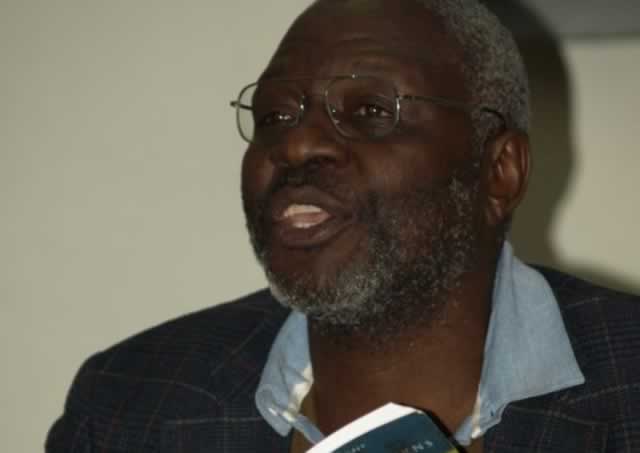Questioning the middle class agenda

Elliot Ziwira
The middle class, according to THC Stevenson (1913), is a class between the poor working class and the upper class. It comprises professionals — academics, managers, lawyers, doctors and senior civil servants.
The characteristic traits of this class are normlessness, arrogance, hypocrisy, individualism and deceit.
Because of an inclination towards Western standards, spurred on by Western education acquired through tertiary schooling, the middle class shuns traditional cultural norms through escapism-either through Pentecostal churches with their prosperity mantra, or atheism.
Consumption, and not productivity, pervade this class as lifestyle seems to overshadow investment.
If given a chance this class can run down a whole nation, as it is not only driven by ambition, self-aggrandisement and avarice, but it is a class which society draws inspiration from for its forward thrust as it is presumed to be knowledgeable.
It is only the nature of the knowledge acquired that makes over-reliance on this class tragic.
It is against this backdrop that Shimmer Chinodya’s paradigm shift to middle class experiences in his later works, “Queues” (2003), “Tavonga” (2005), “Chairman of Fools” (2005) and “Strife” (2006) is not only spot-on, but masterful.
By satirising the middle class of which he is part and condemning its tendencies, he is able to effectively play the role of the satirist who “is usually conscious of the follies and vices of his fellows and he cannot stop himself from showing that he is” (Pollard, 1970:1).
Chinodya explores the universal social neurosis prevalent on the national psyche because of the dearth of ideas on the part of visionaries and thinkers. As aptly noted by Chenjerai Hove in “Palaver Finish” (2002), “the death of the Kingdom begins with the death of ideas”.
If a nation thwarts ideas and efforts of others to whom it should show allegiance, such a nation disintegrates and ultimately its demise becomes inevitable.
In “Queues” Chinodya condemns lack of vision, selfishness and avarice on the part of the leadership. He explores the self-imposing and self-inflicting nature of the nation’s problems as having a historical link.
In his condemnation of vice he uses realistic traits of modernism and the autobiographical mode.
He does not only seek solutions from the world of yore which he juxtaposes with the present one of woes, but he uses the experiences of an atheistic artist-hero and his lover/friend, Rudo.
Through this technique which also obtains in “Tavonga”, Chinodya lashes out at the hypocritical tendencies pervading middle class experiences which burden the marriage institution and bleed the nation.
The artist narrator and Rudo are given problematic identities which are fractured into several voices.
Their metonymic representation may be studied from different platforms as they embody different aspects of the national psyche.
The narrator is deliberately endowed with two voices; the first person singular and the first person plural or collective one.
These two voices interact and merge into the national biography. In the first person singular voice which is mostly in the present world, the narrator is a middle class man who toils in the day to day hullabaloo of a nation of zombies reduced to caricatures by plunder, deceit and mismanagement.
Because, his family is broken up; he seeks solace in the company of Rudo, an egotistic middle class widow who seem to have reservations on the institution of marriage.
However, there is more to it than meets the eye as the implicit nature of their relationship is exposed when it is superimposed into the collective voice.
In the present world, the narrator is hoist in a whirlwind voyage of love, deprivation, deceit and intrigue.
In the collective voice he embodies the decadent nature of the national psyche which he satirises as having its roots in the leadership’s lack of vision.
Women have become mean as they have lost their motherly glow espoused by Sisi Elizabeth, becoming abundantly independent of expression as suggested by Rudo’s wearing of “a black see-through blouse and angle length denim skirt with a long slit on the side” and yet remaining parasites on men.
Single mothers like Rudo and Jean in “Queues” and JC in “Tavonga”, Chinodya’s middle class, are also an indication of the break-up of the family unit which is at the heart of the nation and thus robs children of proper parental guidance.
Although this condition is usually as a result of the egotistic and conceited nature of middle class women who are emancipated by education to pursue their own careers instead of hoping into marriage or sticking to it, men are also to blame as their culture of consumption is detrimental to the institution.
Rudo, like JC and Bena in “Tavonga” conform to Isabel’s philosophy in Henry James’ “The Portrait of a Lady” who believes that one should not “begin life by marrying. There are other things a woman can do”, and holds that “a woman ought to be able to live to herself . . . it was perfectly possible to be happy without the society of a more or less coarse minded person of another sex”.
To Bena, an accountant like Veronica in “Chairman of Fools” (2005), who finds the elixir in religion,” marriage like drinking is purely a matter of choice”.
It is this shunning of the claustrophobic nature of marriage to the ambitious middle class woman, which is tantamount to moral decadence as these same independent, egotistic and intelligent women are rebuffed by the chauvinism and sexism inherent in men as they are left to nurse their egos as single mothers, because like Bena “who is too good to find a man to match her”, they are deserted; becoming “perfect small houses” clinging to married men.
What Chinodya seems to conscientise his nation on is that marriage, though purely a matter of choice as Bena pointed out, and Isabel complemented, is convenient as it moulds the national consciousness.
As is enshrined in the Bible, the love for money jeopardises family virtues as individuals are in a hurry to grab as much as possible of whatever the material world has to offer, as is illustrated in the following: “He who loves money, will not be satisfied with money, nor he who loves wealth, with gain; this also is vanity” (Ecclesiastes, 5v10).
Individualism, ambition and deception are vices that Chinodya raps in the middle class as patriotism and humility are traded for materialism.
This is suggested by this class’ obsession with “durable consumer goods such as cars or real estate, rather than the creation of wealth”, (Kgomoro Nyanto in “New Africa Magazine”, cited in “The Sunday Mail”, May 7-13 2006 p9).
Their kind of investment does not promote national welfare and the creation of employment. Farai, the writer-professor in “Chairman of Fools” has several houses and flats yet when disaster strikes him, he becomes parasitic on government facilities like the Annexe which are sponsored by public funds.
This is the kind of society that Chinodya is contemptuous of in his later works.
The general neurosis at the heart of the nation today, therefore, has its roots in the individual psyche because the “decay of the human body begins with the decay of a small part of it”, Hove (2002:7); and that “small part” ironically, is the middle class-the supposedly torch bearers.








Comments